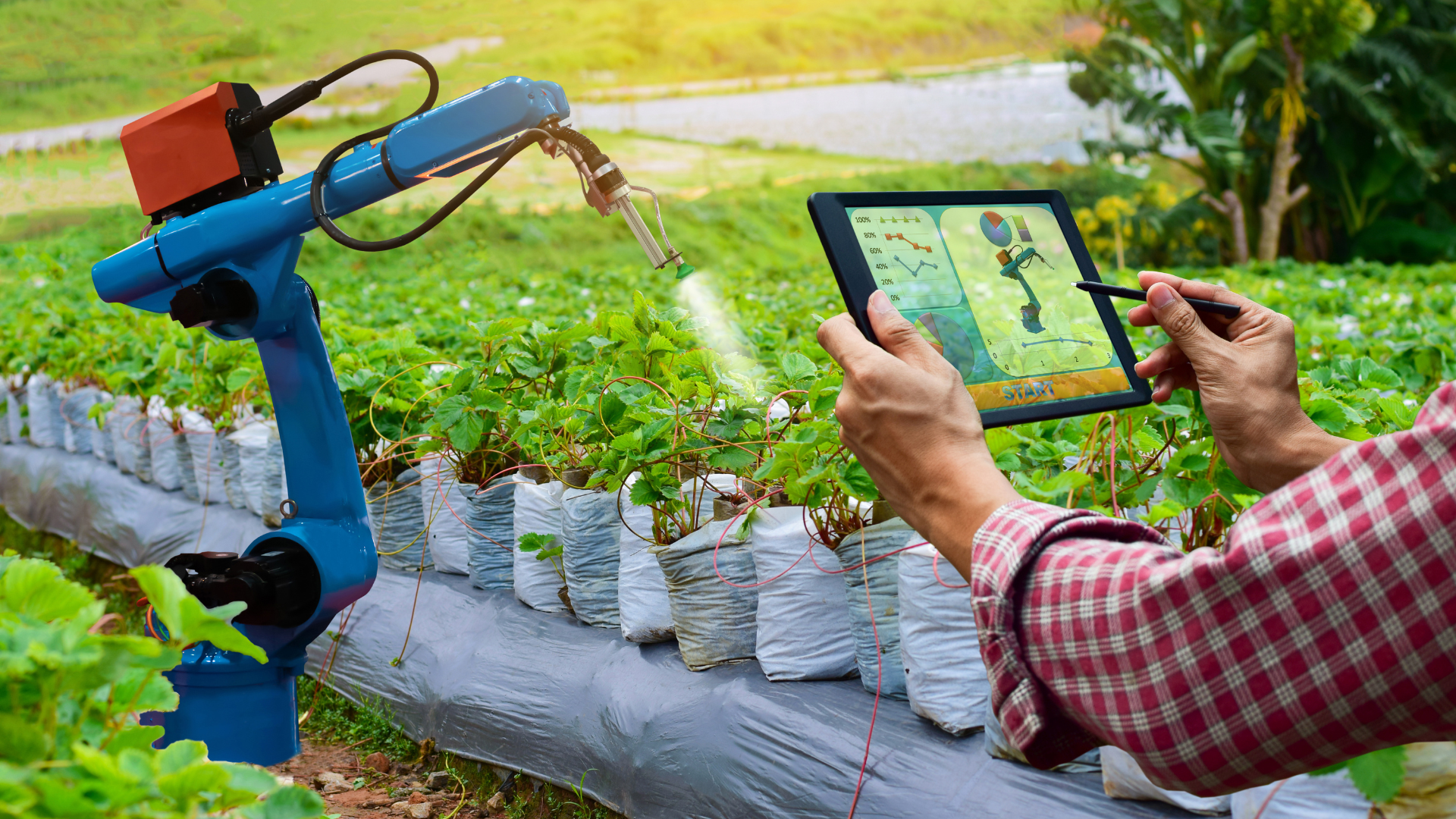When we think about climate change, conversations typically focus on fossil fuels, renewable energy, and electric vehicles. However, food and agriculture — major contributors to global emissions — often go unnoticed. In an interview with Bob Safian, host of Masters of Scale, Peter McGuiness, President and CEO of Impossible Foods, passionately argued at ClimaTech 2024 in Boston that it’s time to change this.
A New Perspective on Food and Climate
Peter McGuiness argues that the connection between food consumption and climate impact is widely misunderstood. “People don’t think about the environmental consequences when enjoying a burger or steak,” he said. He highlighted the importance of education, noting that the entire food production process — from growing to processing to transportation — leaves a substantial environmental footprint. This includes deforestation, excessive water use, and significant greenhouse gas emissions. Yet, food choices are personal and often tied to moments of joy, making the conversation around this issue complex and sensitive.
Navigating Industry Challenges
Two years ago, plant-based meats were experiencing a surge in popularity. Today, the sector faces what McGuiness describes as a “correction.” While some might see this as a setback, McGuiness views it as an opportunity for realignment and growth. “The category is down, and there’s a cloud around it for various reasons, but it’s up to us to reverse it,” he stated. Impossible Foods stands out as a rare success in the plant-based space. However, McGuiness quickly clarifies that his goal isn’t to dominate the plant-based market at the expense of others. Instead, he is focused on tapping into the $1.4 trillion global market for animal-based products. “The objective isn’t to rearrange the deck chairs in plant-based foods. We’re targeting the massive animal meat market,” he explained.
Addressing Health and Misconceptions
A significant challenge for plant-based products is the perception that they are overly processed and unhealthy. McGuiness attributes this misconception to the meat industry’s marketing efforts, which have fueled negative terms like “fake,” “foe,” and “processed.” “We’ve done a poor job of countering this narrative,” he acknowledged. In response, Impossible Foods is now emphasizing the nutritional benefits of its products, which boast higher protein and iron content, zero cholesterol, and half the saturated fat of traditional meat. Rather than dramatically reformulating its products, Impossible Foods focuses on continuous, incremental improvements — what McGuiness calls “iterative innovation.” The company aims to enhance taste and texture with each new iteration. “At the end of the day, it’s about making delicious and nutritious food. If it doesn’t taste good, it’s a non-starter,” he emphasized.
Shifting the Narrative
The plant-based movement has long faced cultural and political resistance, often framed as opposition to the meat industry. McGuiness admits this approach was flawed. “We need to be for something—delicious food, better options, inclusivity—not against people who eat meat,” he said. This inclusive approach invites meat-eaters to try plant-based alternatives without judgment, aiming to integrate these products into everyday diets.
The Role of Marketing
Under McGuiness’s leadership, Impossible Foods has reimagined its marketing strategy to highlight taste and nutrition. For instance, the company swapped its green packaging for red, aligning more closely with traditional meat products and enhancing visual appeal. While environmental and climate benefits are still part of the message, they are no longer the focal point. “When you tell someone, they’re eating a climate-friendly burger, they assume it won’t taste good,” McGuiness pointed out. Impossible Foods aims to attract a wider audience by focusing on deliciousness first.
Looking Ahead
Despite the challenges, McGuiness remains optimistic. He envisions a future where plant-based foods are a regular part of people’s diets, driven by their taste and health benefits. By shifting the narrative from opposition to inclusion, Impossible Foods seeks to redefine what it means to make climate-conscious food choices—one delicious burger at a time.
The Challenge: Outthinking, Not Outspending
In the rapidly evolving world of plant-based meat, the odds are often stacked against innovators. Competing with the meat industry’s vast resources requires ingenuity, collaboration, and a willingness to rethink strategies. Leaders in this space recognize the uphill battle ahead and the importance of rewriting the narrative for long-term success. “We’re not going to out-advertise or outspend the meat industry,” one industry leader admits. “We need to outsmart them. We’re better together than apart.” This shift in mindset represents a turning point. In the early days, the plant-based industry operated in silos; each company focused on its own survival amid challenges of scaling, profitability, and market penetration. This isolation allowed the traditional meat industry to unify and dominate the narrative. “We haven’t banded together in a cohesive, collaborative way to tell our story,”The leader explains. “It wasn’t out of malice — everyone was fighting for survival.”
From Competition to Collaboration
The industry’s future depends on collaboration, not competition. Plant-based companies are not true rivals; at worst, they are “frenemies.” The real opportunity lies in expanding the overall market. “If we focus on stealing from an $8 billion pie instead of targeting the $1.4 trillion pie, we’re missing the point,” the leader emphasizes. “It’s not about taking market share from each other—it’s about growing the category.” This shift requires a fundamental overhaul in how plant-based products are marketed, developed, and positioned.
A Clearer Message for Consumers
One of the biggest missteps in the plant-based meat industry has been its unclear value proposition. Early messaging focused primarily on climate change, but this approach didn’t resonate with the broader consumer base. Terms like “plant-based meat” only added confusion. “We need to rewrite the playbook,” the leader says. “If we keep doing the same thing and expect different results, that’s insanity.” Taste must be at the center of the message, supported by nutritional benefits and ethical considerations like animal welfare and environmental impact. This strategy is about delivering products that are both delicious and aligned with consumers’ values.
The Role of Partnerships
Strategic partnerships with major food chains, such as Burger King, have raised awareness. The Impossible Whopper, for example, is a popular menu item across America. However, there is still much more potential for growth, with ongoing efforts to expand into new meat categories and product offerings. “We’re in 58,000 food service locations, but there are 1.4 million in the U.S.,” the leader notes. “We’ve barely scratched the surface.” The retail space offers even greater opportunity. Although plant-based products have made inroads into major grocery chains, they are still far from ubiquitous. The goal is to make these products as accessible as their animal-based counterparts.
A Mission Bigger Than Business
At its core, the plant-based movement is not just about market share; it’s about addressing climate change by transforming agriculture. While this mission drives internal teams, it must be communicated more effectively to consumers and policymakers. “We need to sell more plant-based meat. The more people eat these products, the greater the environmental impact,” the leader says. However, achieving systemic change requires external support. The absence of food-focused incentives in climate legislation underscores the need for stronger lobbying efforts.
A Future Built on Patience and Urgency
Changing eating habits that have been ingrained for millennia is no easy task. Success will require a delicate balance of patience for the long road ahead and urgency to drive immediate change. “We’re trying to change the world’s eating habits. That doesn’t happen overnight,” the leader reflects. As the plant-based industry evolves, its leaders are learning to balance idealism with pragmatism. By embracing collaboration, refining their messaging, and focusing on accessibility, they are not only creating better products but also a better future.
View full session from ClimaTech 2024 here:








